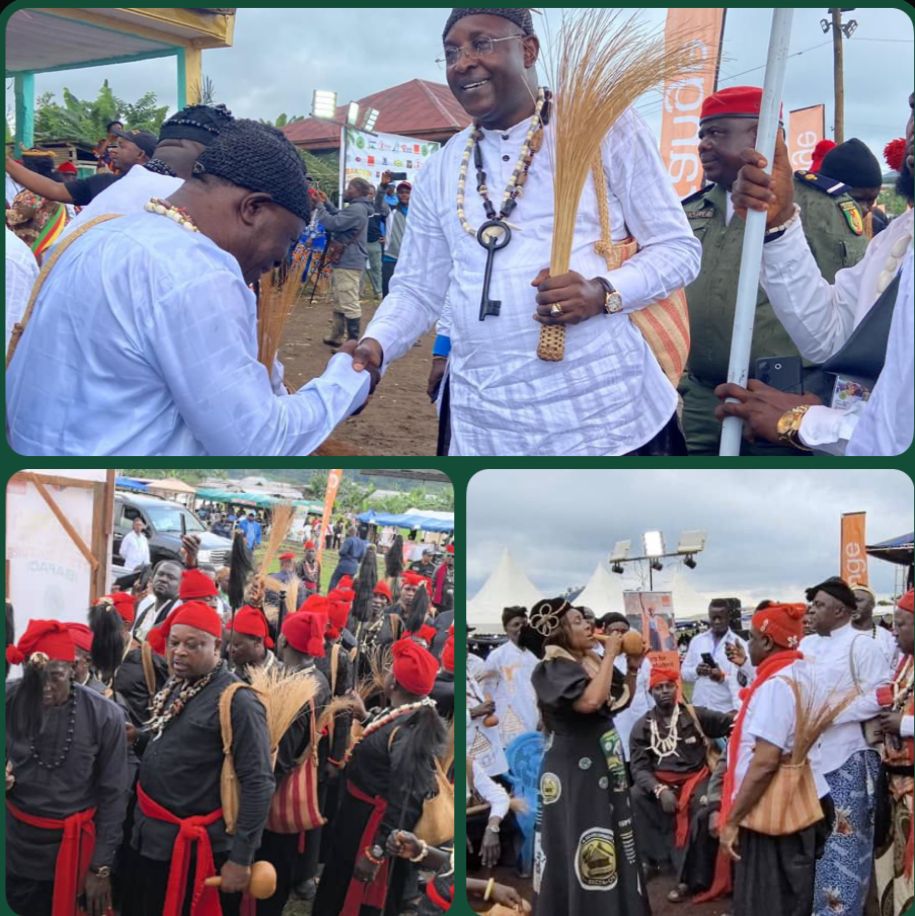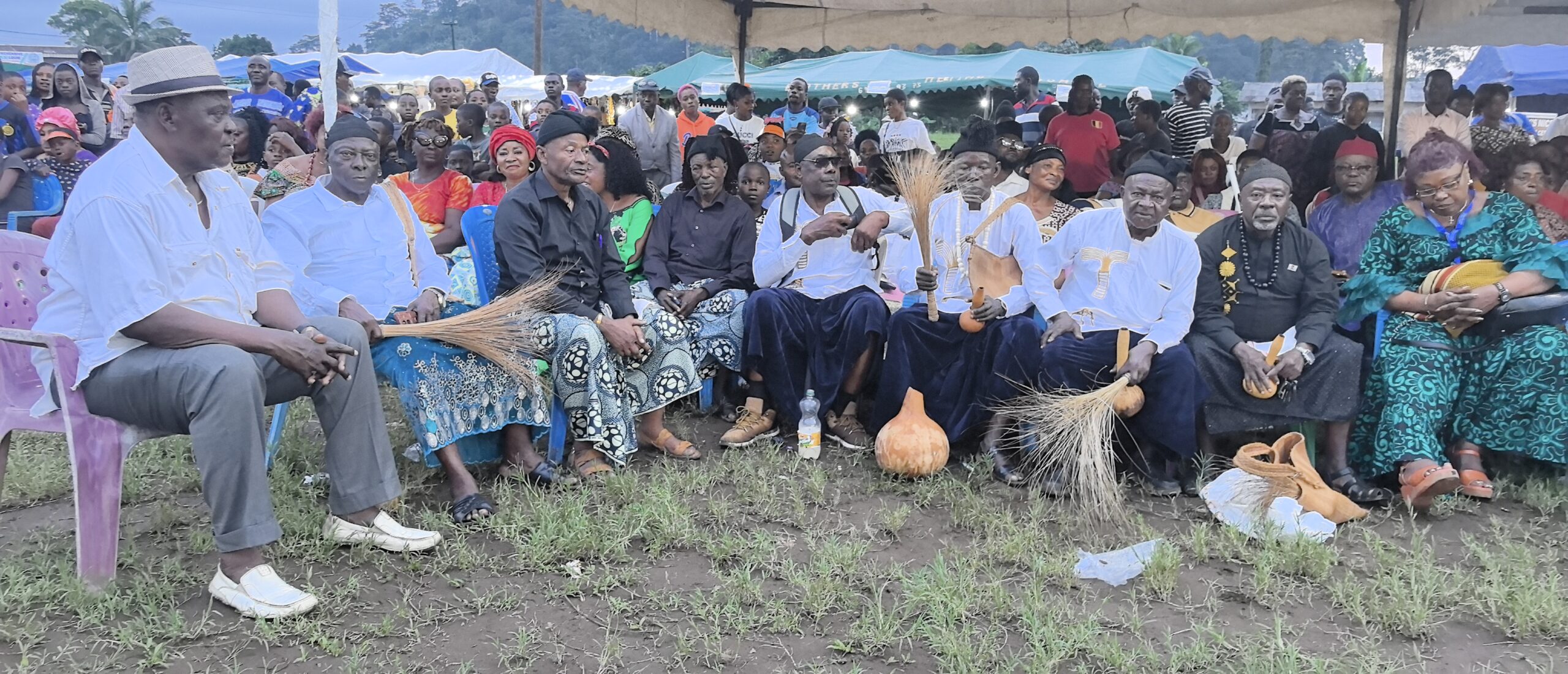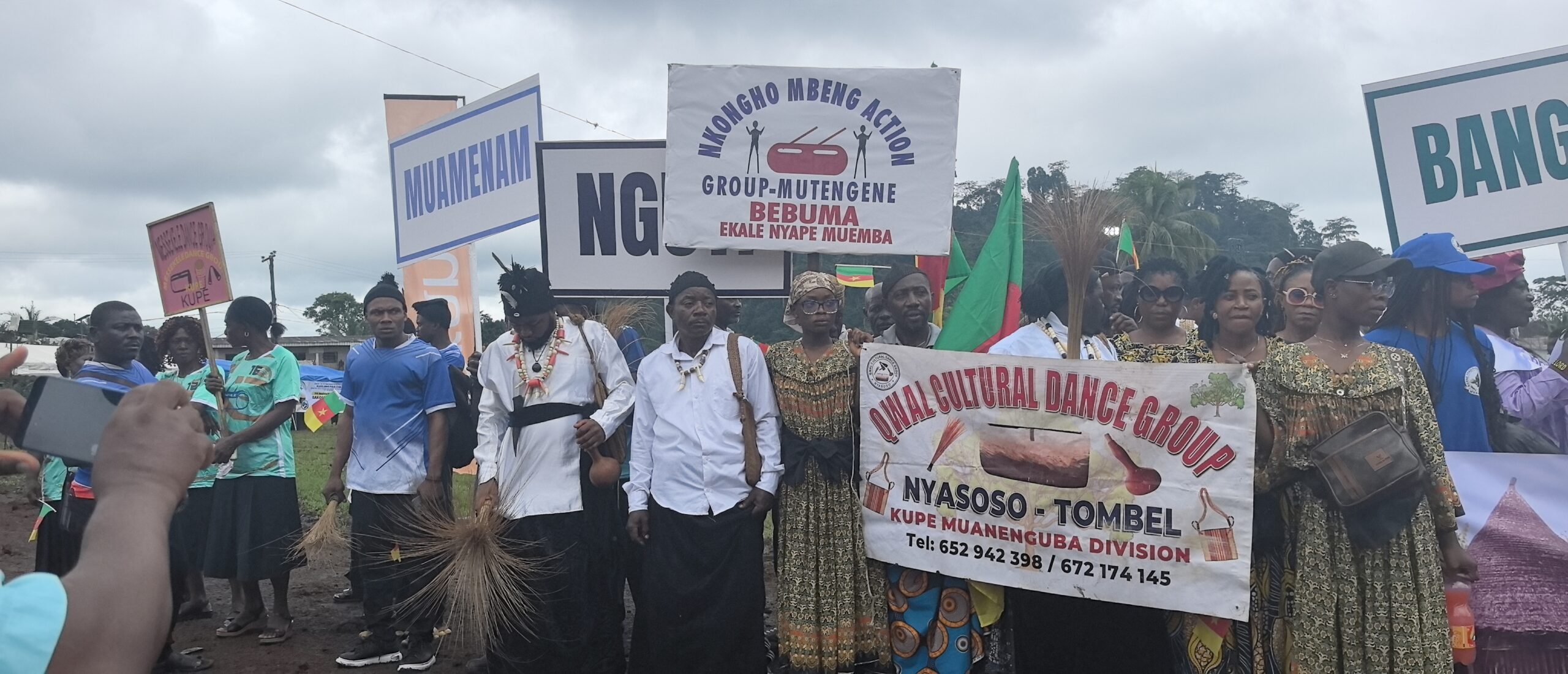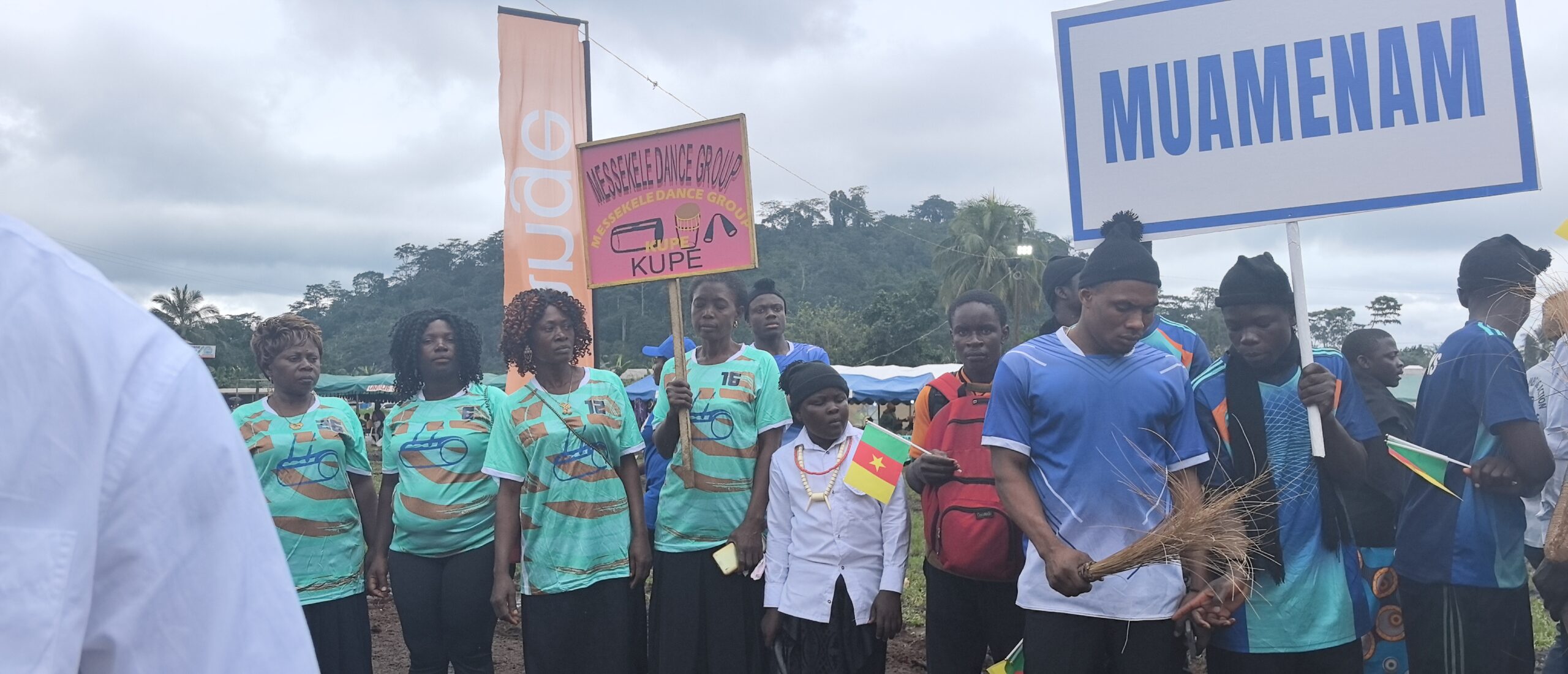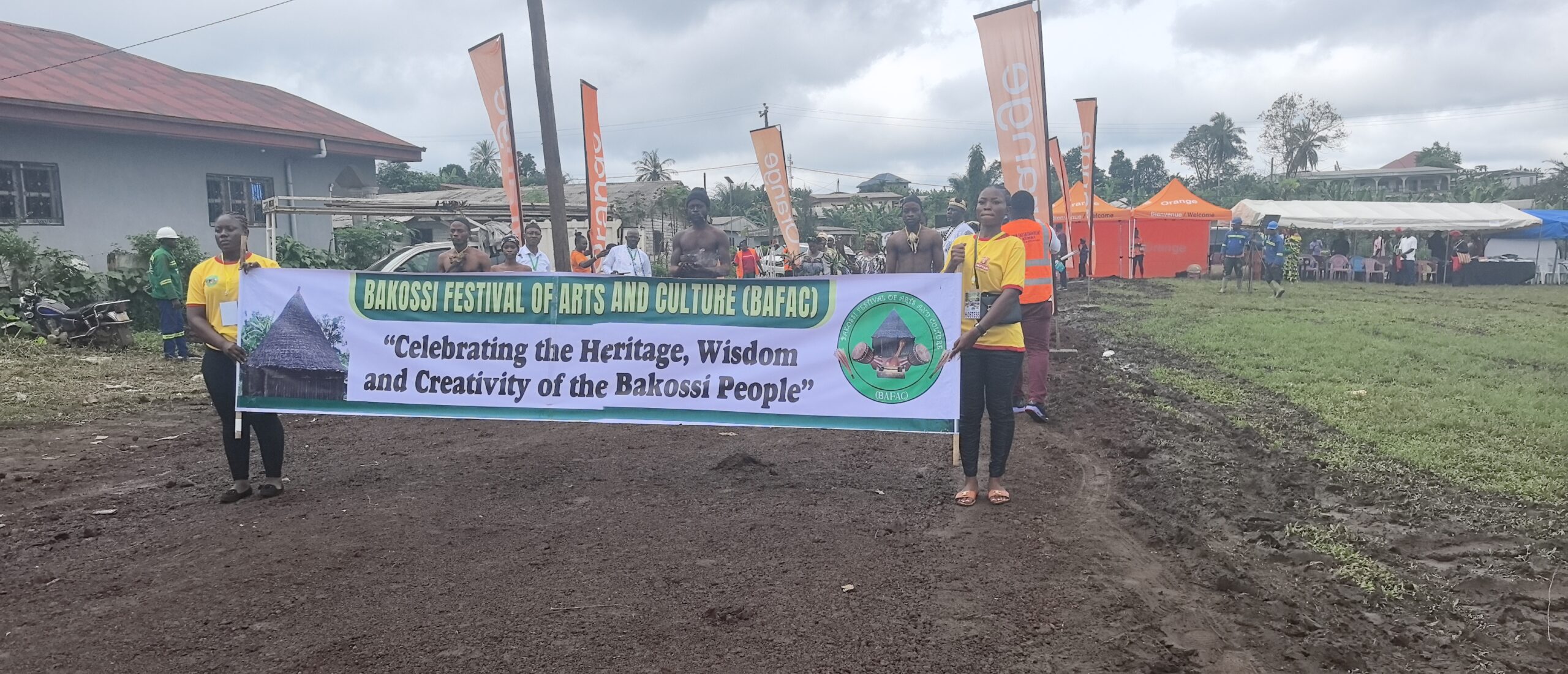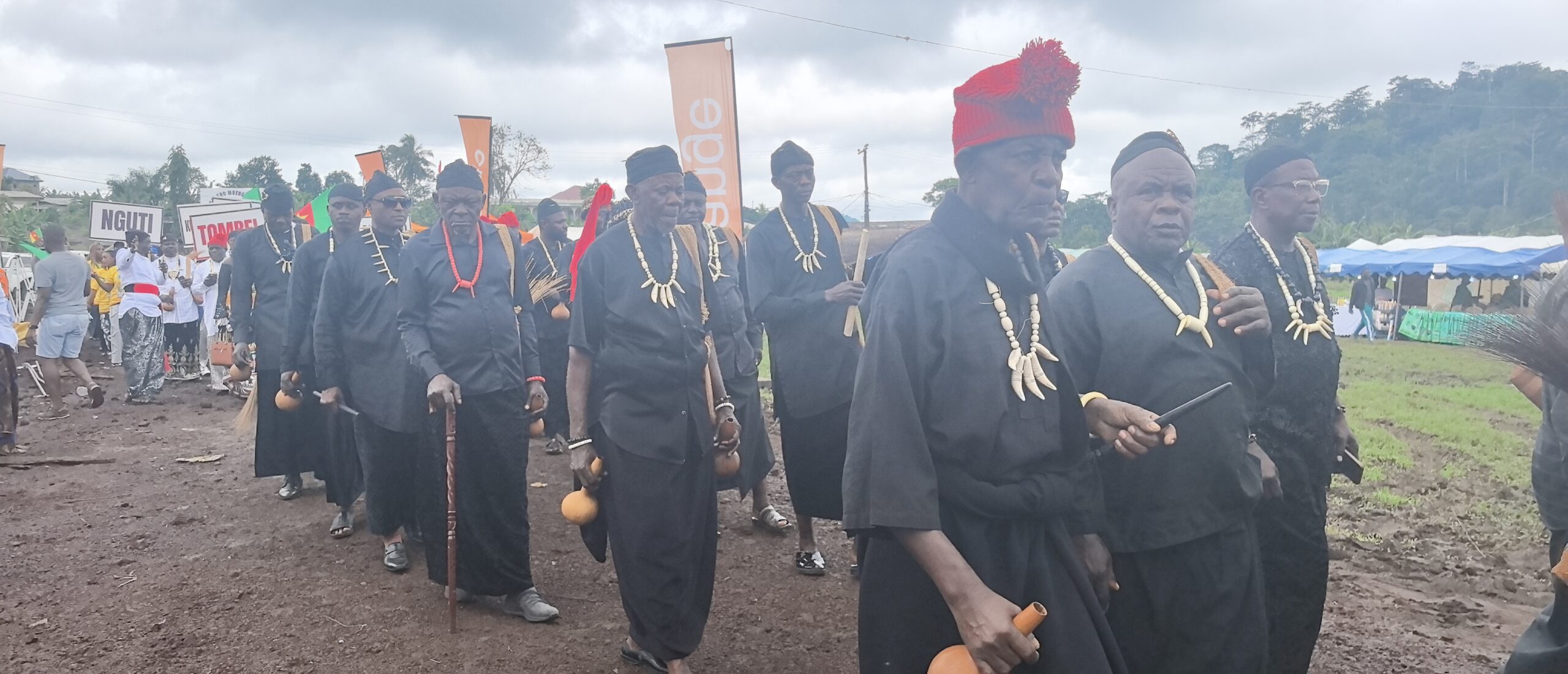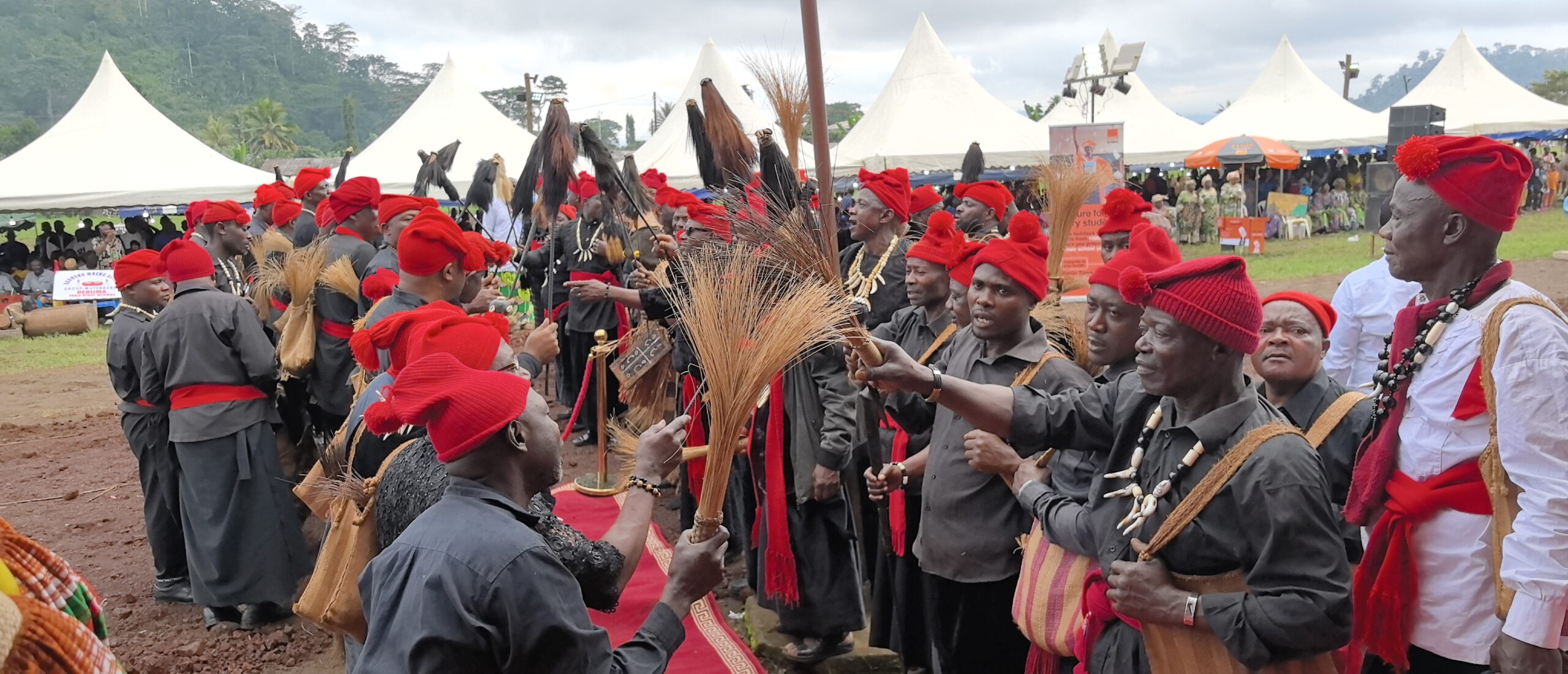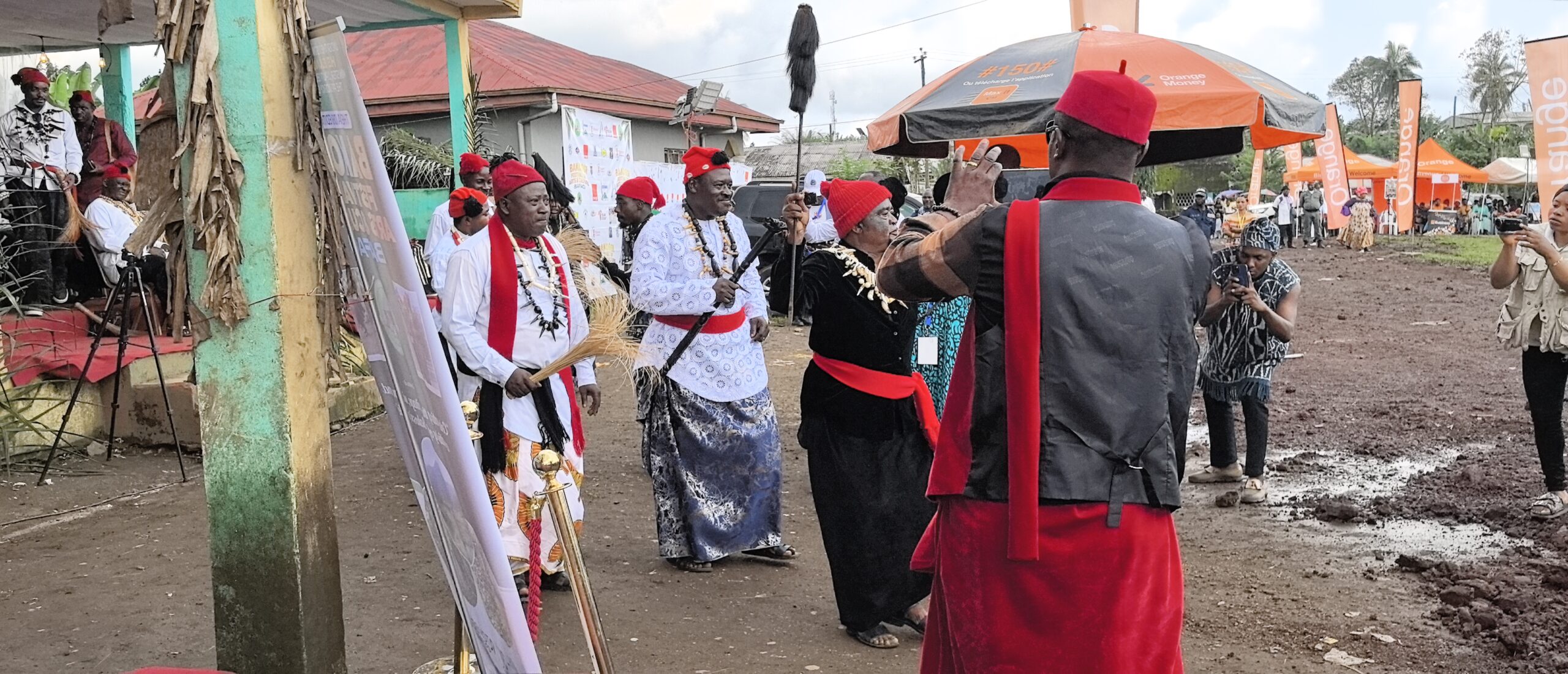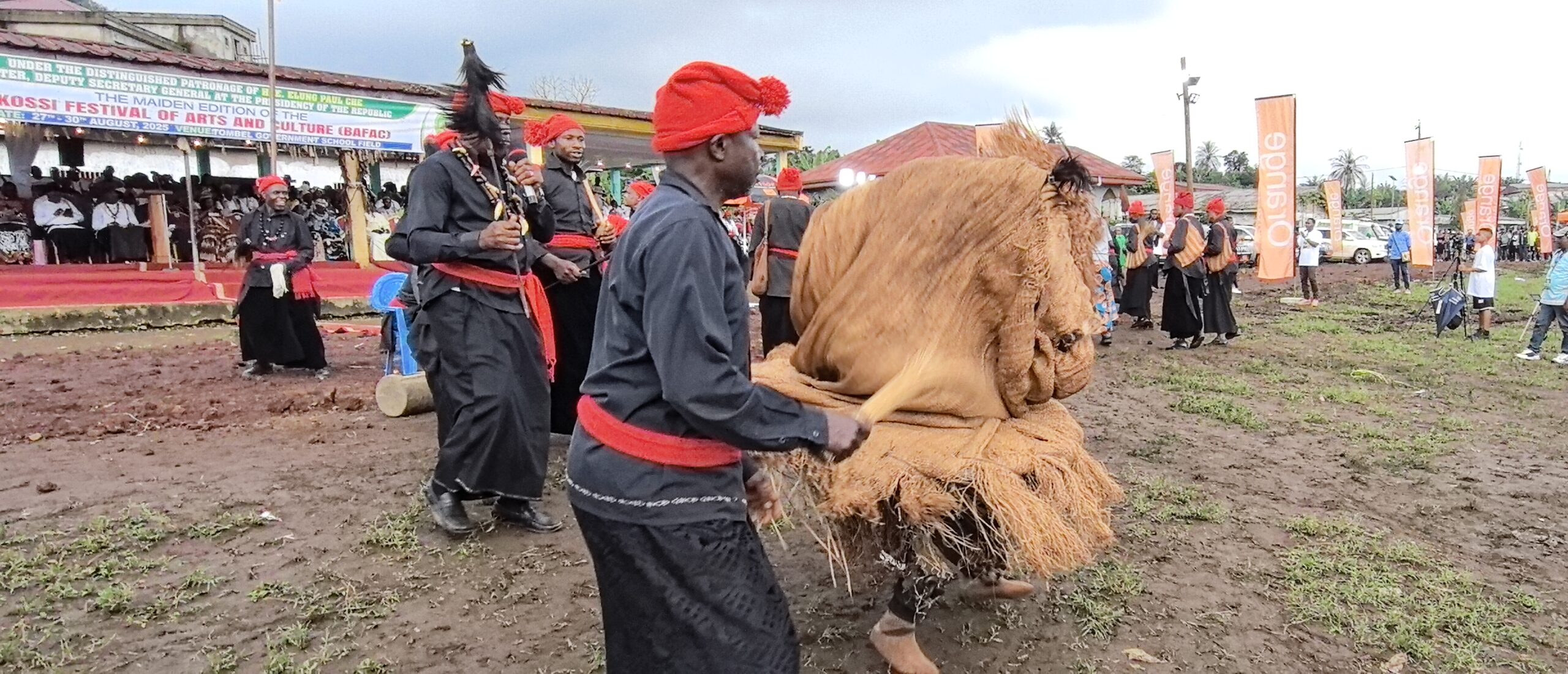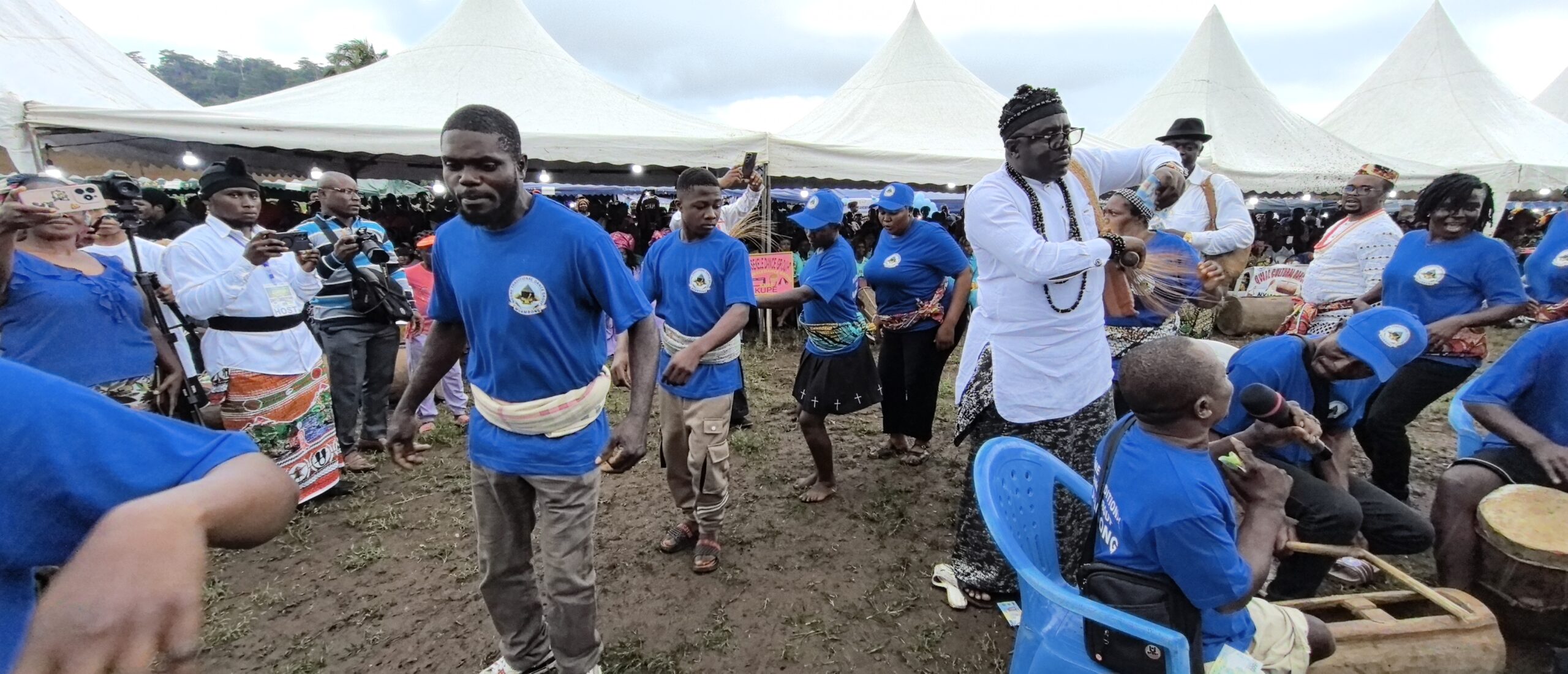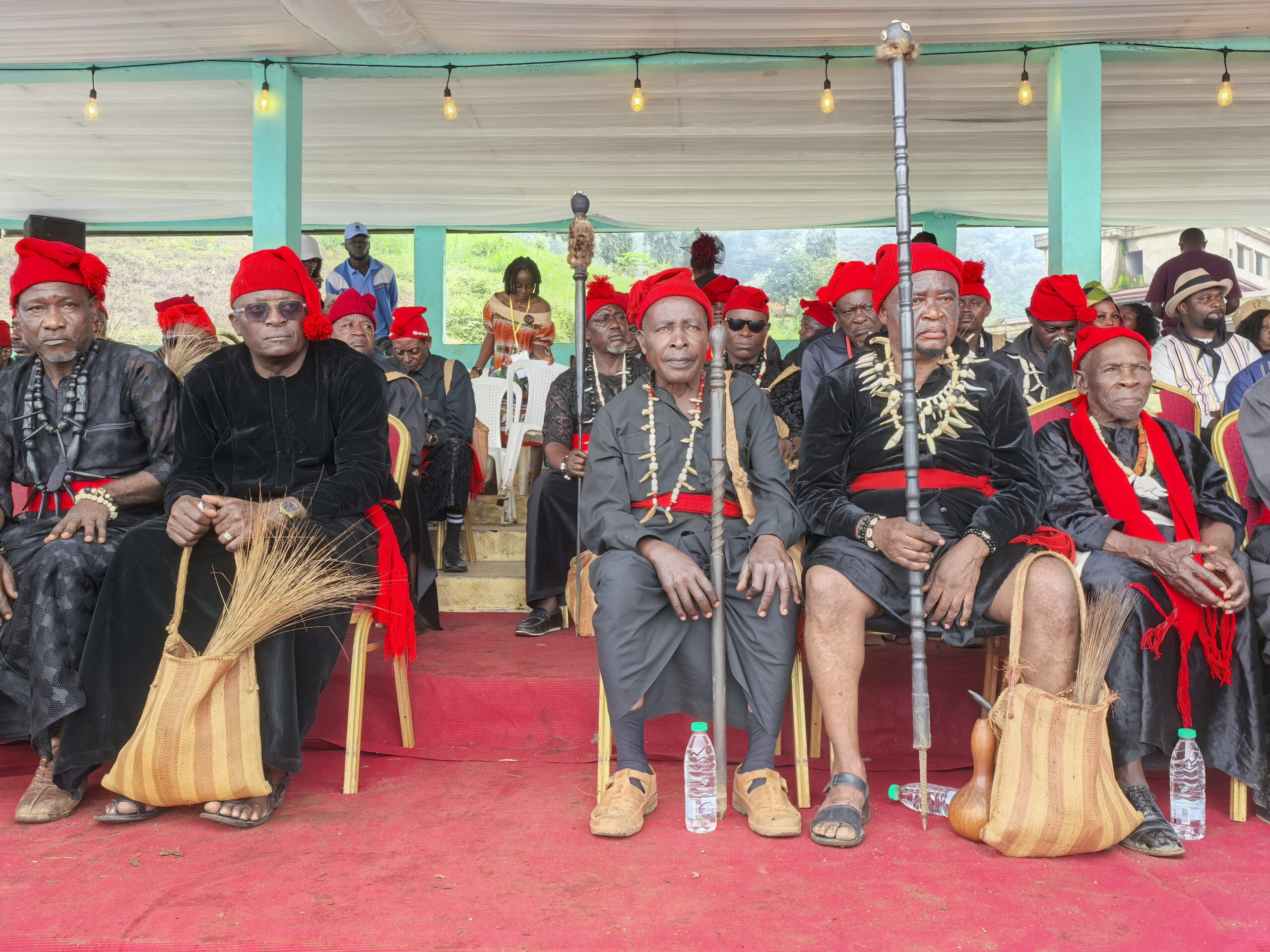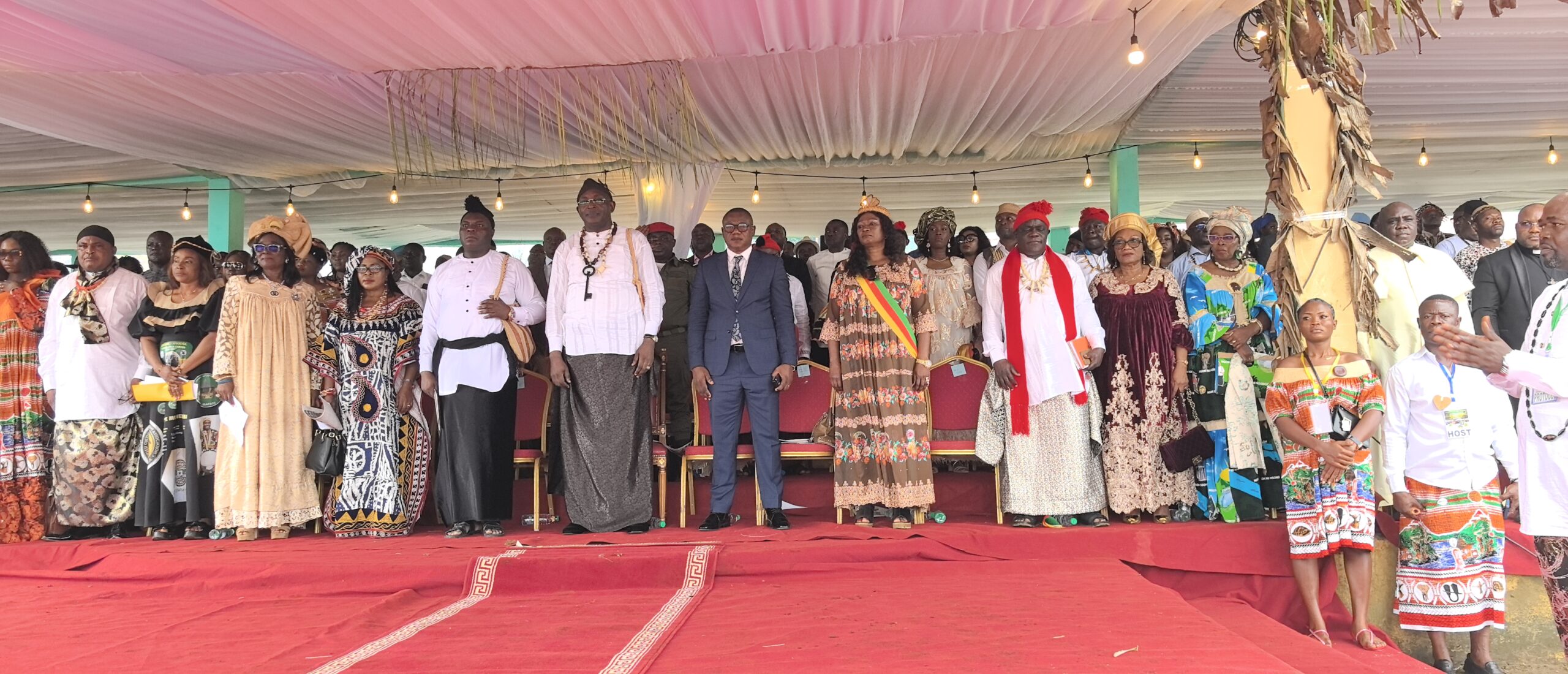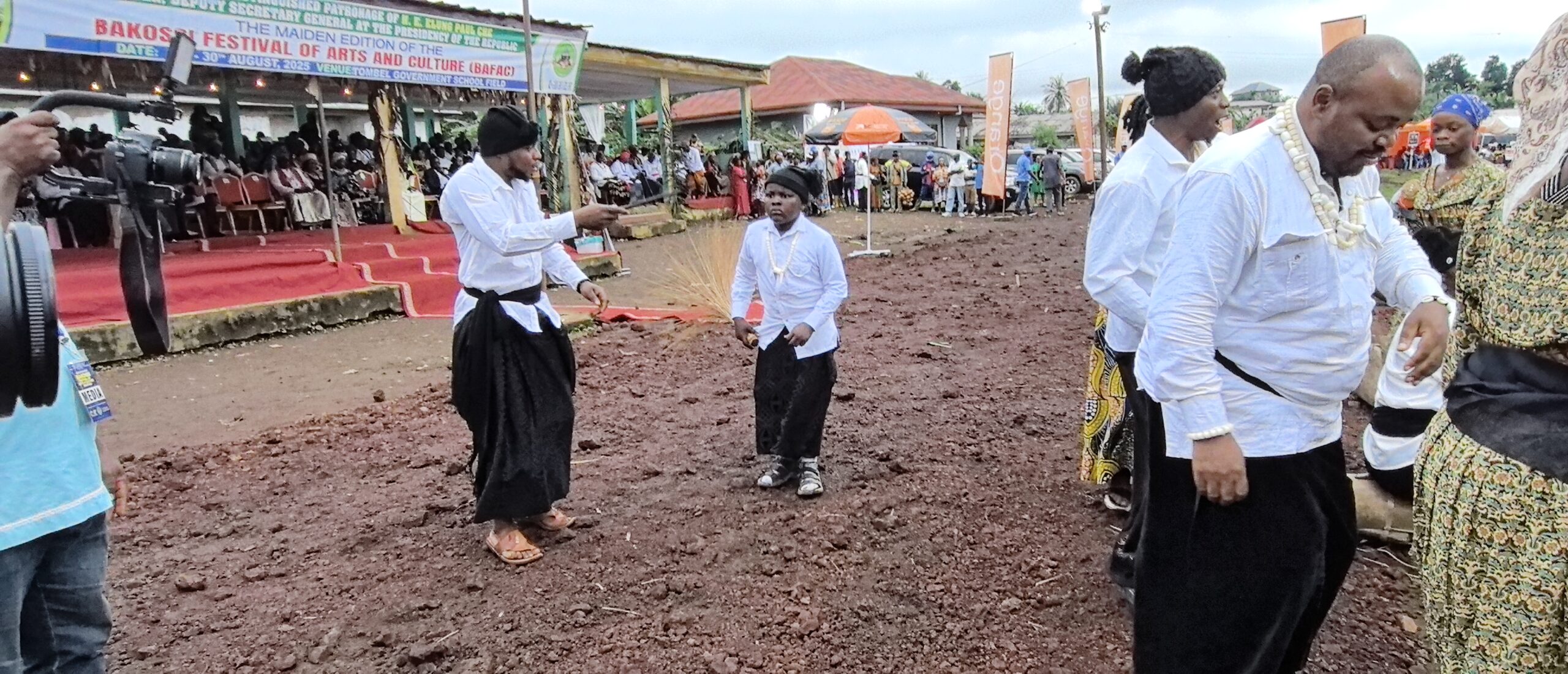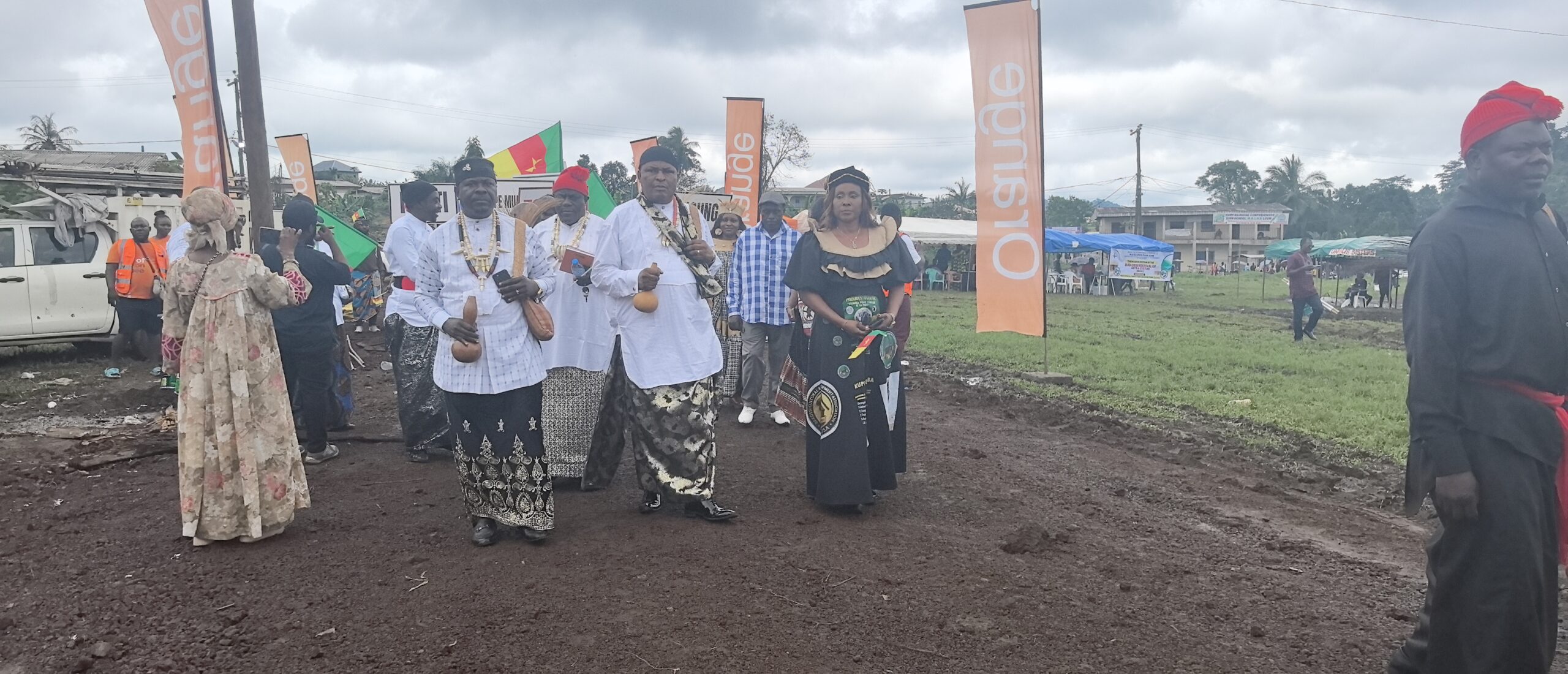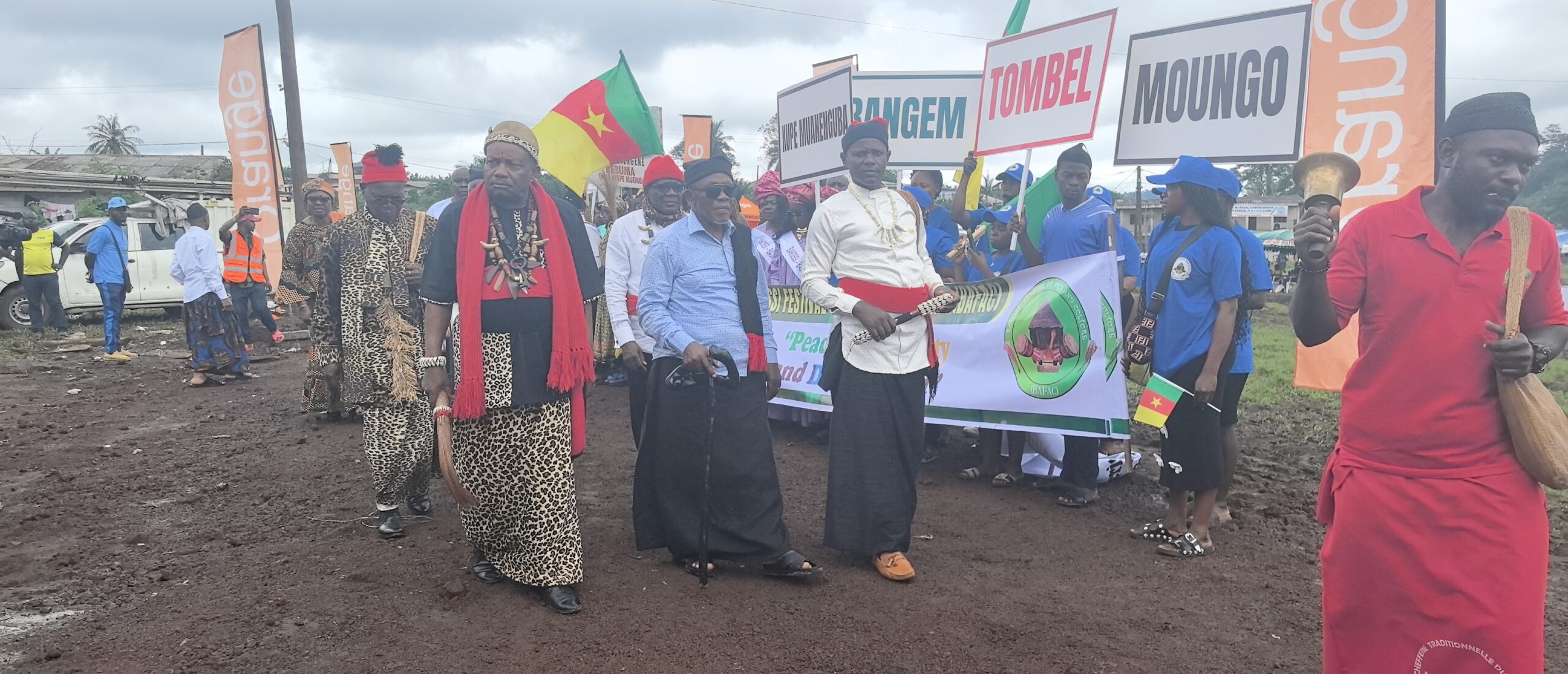AN ADDRESS BY HIS EXCELLENCY, ELUNG PAUL CHE, MINISTER, DEPUTY SECRETARY GENERAL AT THE PRESIDENCY OF THE REPUBLIC. ON THE OCCASION OF THE OPENING CEREMONY OF THE BAKOSSI FESTIVAL OF ARTS AND CULTURE. Tombel, August 28, 2025
The Senior Divisional Officer for Kupe Muanenguba; The Divisional Officer for Tombel; Honourable Members of Parliament; His Royal Highnesses, the Chiefs of the Bakossi land; Cultural Custodians; Illustrious Elites; Respected Sons and Daughters of Ngoe and Sumediang; Distinguished Guests; Ladies and Gentlemen.
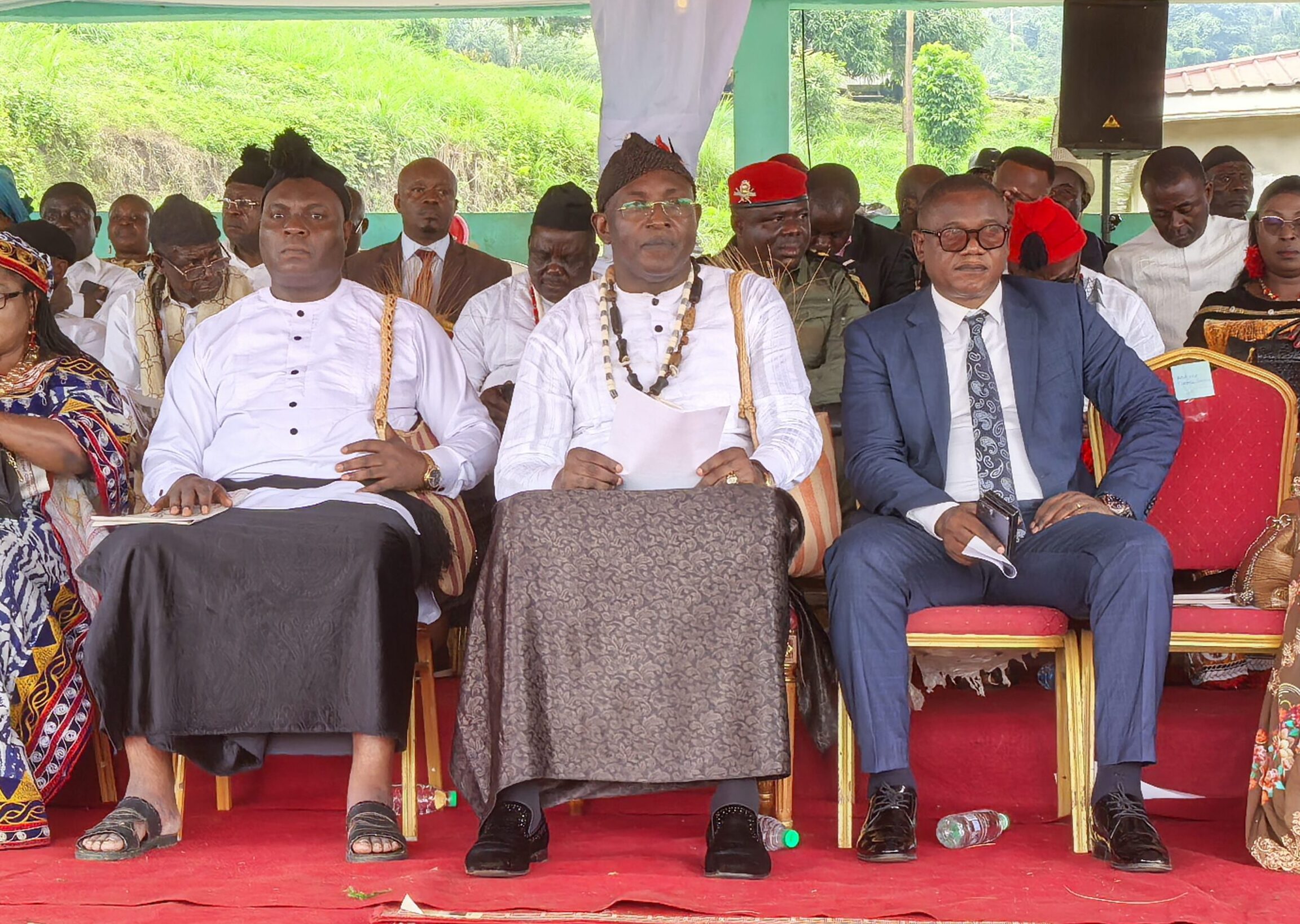
It is with immense joy and deep gratitude that I welcome you all to this historic occasion of the Bakossi Festival of Arts and Culture, held in the heart of Tombel, one of our ancestral homelands nestled between the sacred peaks of Mount Kupe, Mount Mwanenguba, and Mount Nlonako.
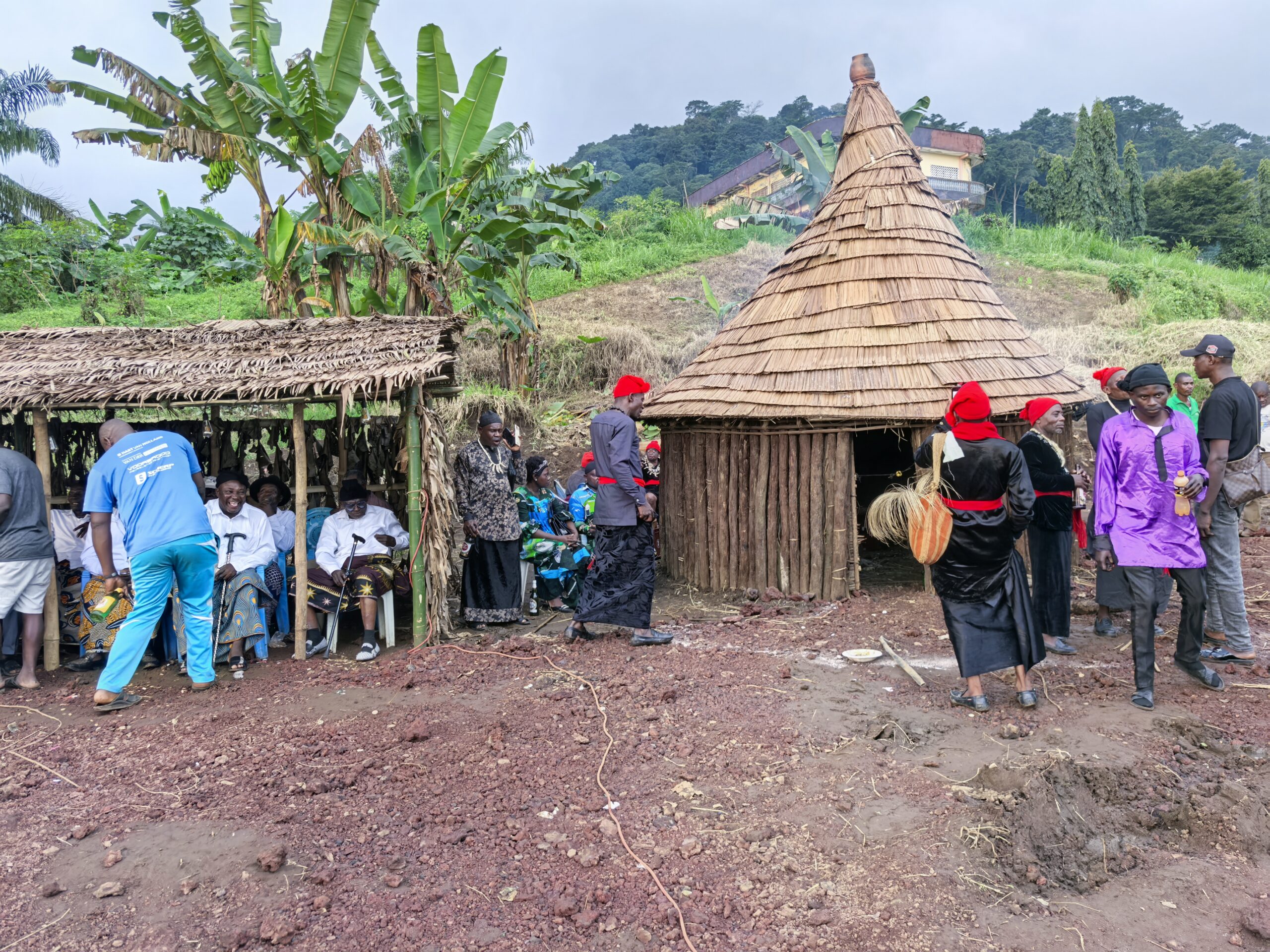
Let me begin by extending my warmest congratulations and sincere appreciation to the promoters and organizers of this extraordinary initiative. What you have created here is more than a cultural gathering: it is a movement, a clarion call, and a reawakening of the Bakossi spirit.
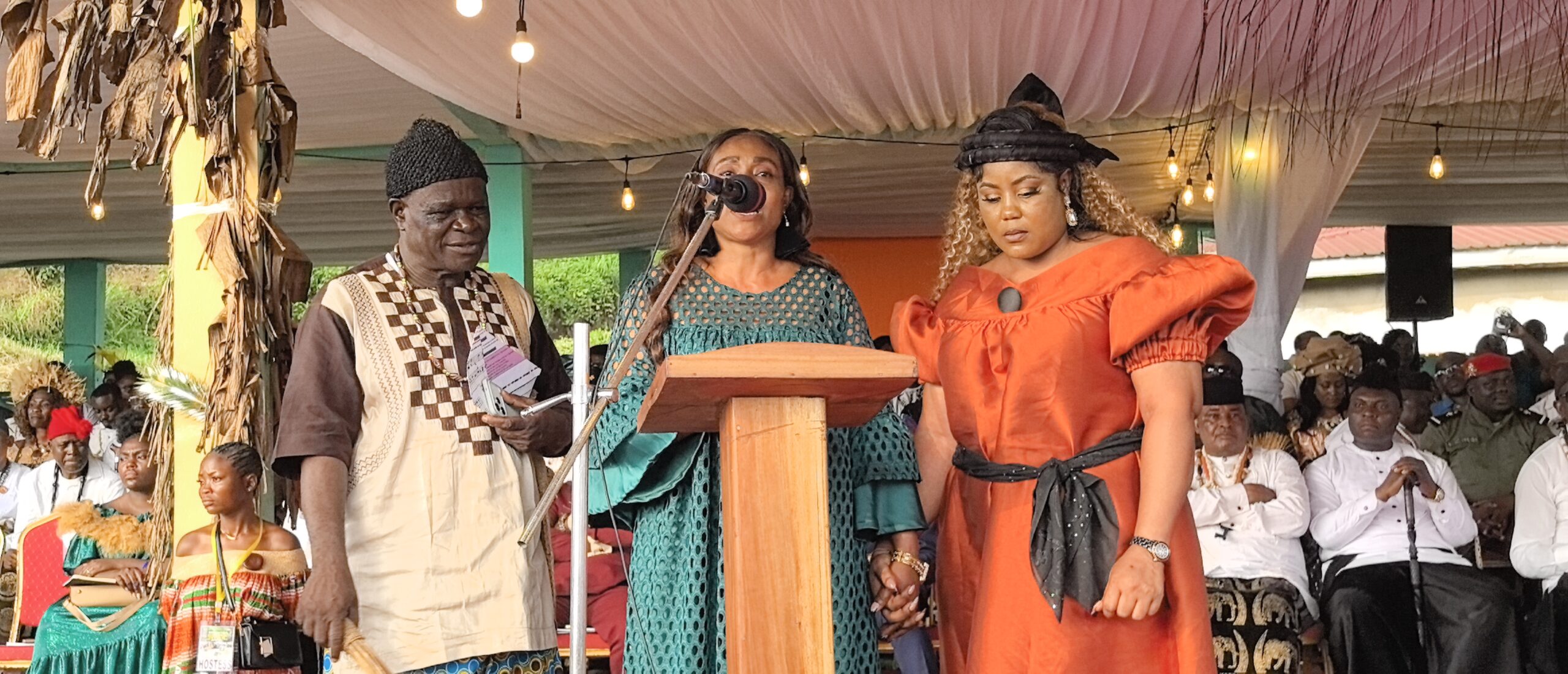
On behalf of the entire Bakossi people, I say: Thank you! We pay heartfelt tribute to your vision, your commitment, and your unwavering dedication. You have reminded us that our culture is not something to archive—it is something to live, to celebrate, and to pass on with pride.
May I extend fraternal and warm welcome to our principal custodians and participants; our Chiefs, cultural groups, elites, administrators, and the so many Bakossi sons and daughters from both the English-speaking and French-speaking bakossi clans.
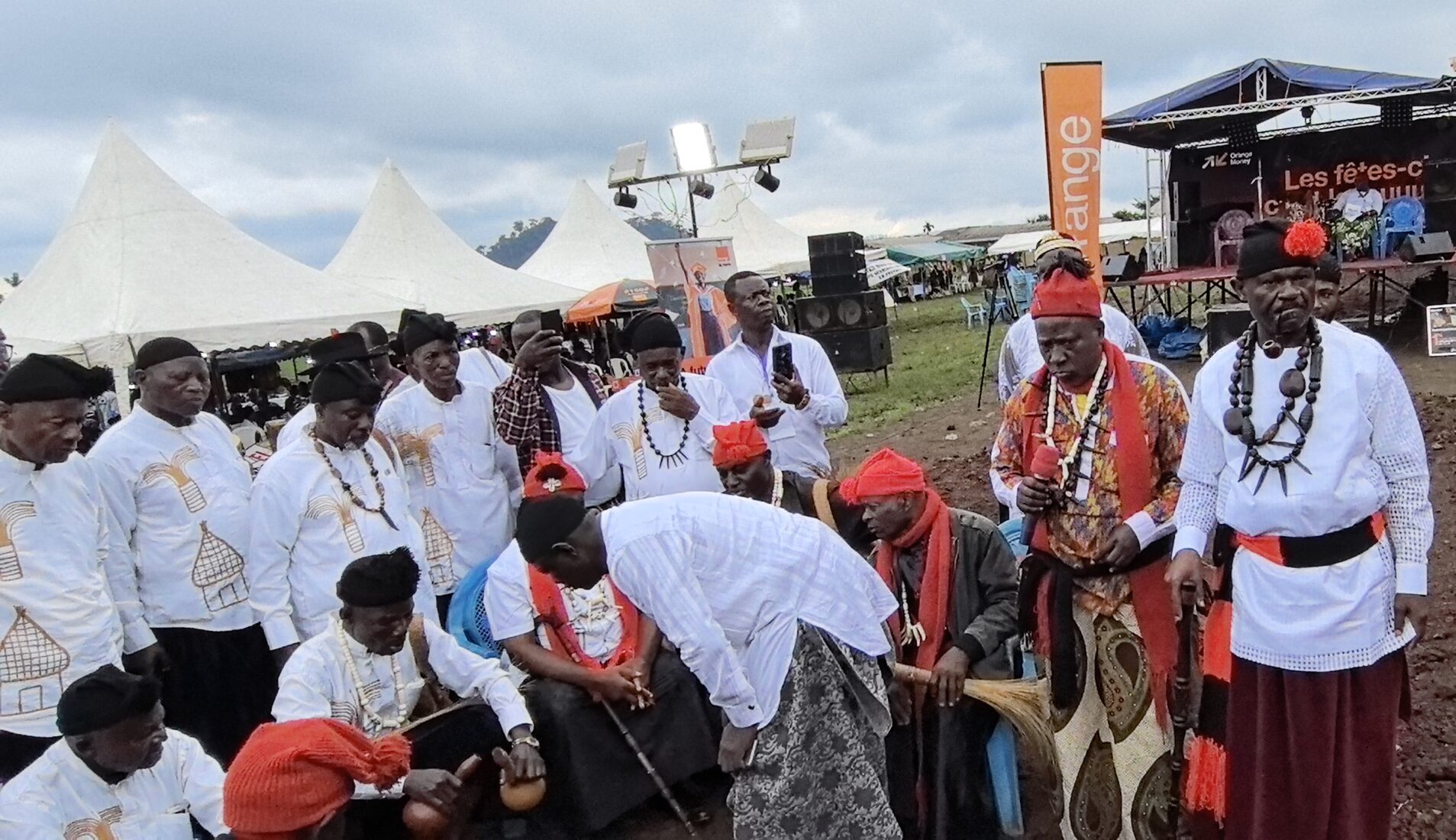
You have embraced a noble vision: to come together as one people, beyond clan boundaries, administrative lines, or linguistic differences. You have responded to a call that transcends geography—a call of the heart, a call to remember who we are and where we come from.
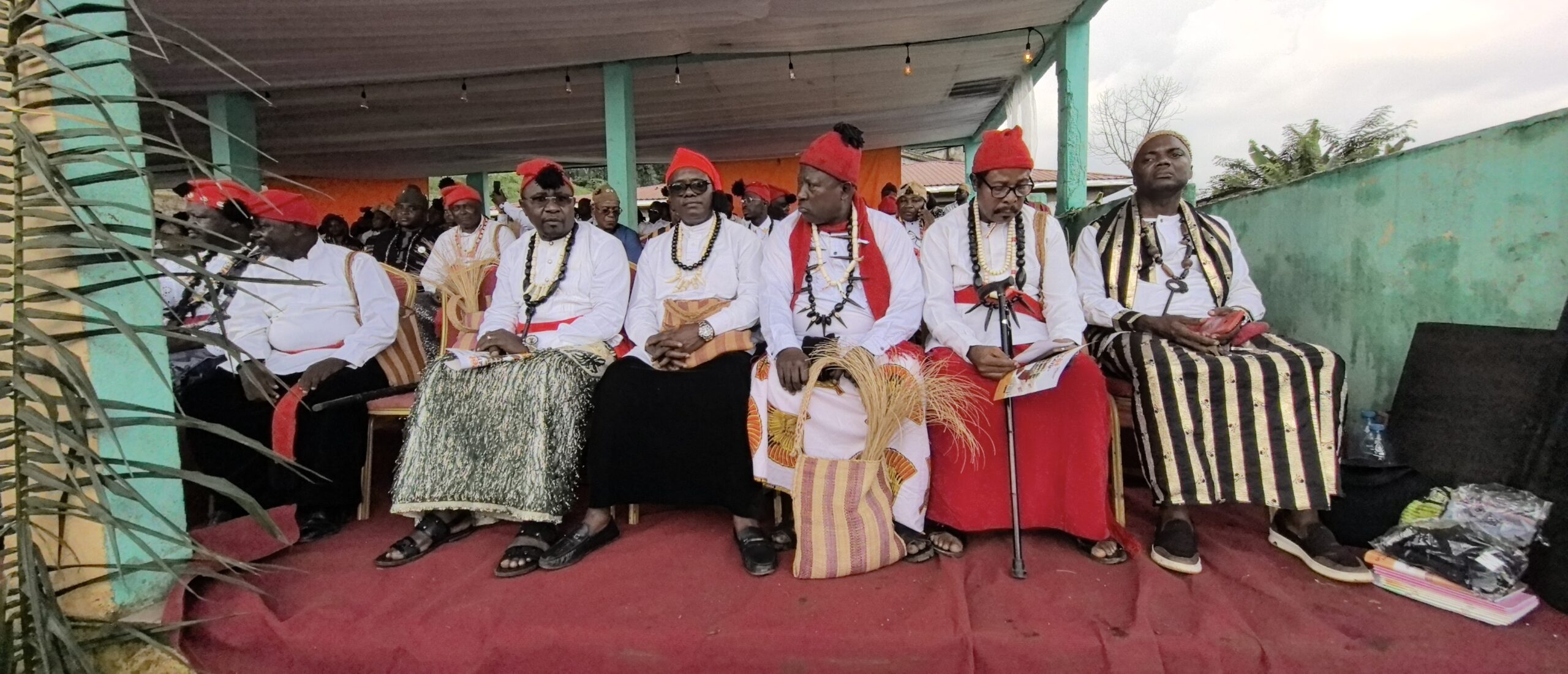
My dear parents and kinsmen, I do not consider this gathering in Tombel as a mere festival, it is more of a family reunion. In a world that often seeks to divide us, today, we gather in fraternity to heal old wounds, build bridges between generations, and strengthen the bonds between Bakossi communities across Kupe Muanenguba and Mungo divisions.
Today, we are not strangers from different corners of Kupe Muanenguba, the Southwest, the Littoral, or the diaspora. We are simply Bakossi; a people bound by one heritage, one ancestry, and a common destiny. Therefore, I urge that we move forward together united, inspired, and proud of our unique and shared identity.
Let us remember that by showcasing our culture, we are also celebrating the rich tapestry of Bakossi traditions. Let us begin with what we see and hear—the vibrant dances, majestic masquerades, ancestral rhythms of the drum, ageless forest songs, story-laden garments, and symbolic gestures.
However, this cultural showcase is not merely for entertainment—it is a sacred act of remembrance; every dance tells a story, every drumbeat recalls our roots and every costume reflects the wealth of our imagination and history.
Culture is not static! It evolves, but it must never disappear. Our traditions are the bridges that connect generations. When we sing the songs of our ancestors, we do more than echo their voices—we invite them to walk beside us, guide us, and bless us.
As we enjoy these performances throughout the festival, let it be known: we are not preserving culture for outsiders—we are reviving it for ourselves, our children, and our collective future. Let our youths not merely observe tradition—let them inherit it so that they will never be foreigners in their own cultural homeland.
Our culture is not only in what we wear or perform. It is what we know, what we believe in and how we live.
We, the Bakossi people, are custodians of profound ancestral wisdom preserved in fireside tales, proverbs, sacred rituals and indigenous governance. Our spirituality, rooted in nature and reverence for the divine, reflects a worldview where man, ancestor, and environment exist in cosmic unity.
Unfortunately, today some of us have strayed from these roots. Too often, we exchange identity for imitation and allow others to define us. Permit me ask: Who are we, if we forget where we come from?
My dear brethren, to celebrate our culture, we must reclaim our stories, our names, our languages, and our values. In our different homes, let us speak the tongues of our forebears; Let our children learn our clan names—not just from books, but through lived and real experience.
Let them understand that linguistic difference is not division. Whether English-speaking or French-speaking, we are the children of Ngoe and Sumediang. Our dialects may differ, but our hearts beat in rhythm. Our tongues may vary, but our blood carries the same story.
There is no “them” and “us” in Bakossi. There is only we.
From the tradition-rich pharmacopoeia of Nninong, to the basket weavings and wood carvings of Western Bakossi, to the musical genius of Bangem; from the oral historians of Baseng to the poetic chants of Muamenam—the Bakossis are not merely keepers of culture; we are creators.
Art, for us, is not a luxury; It is our identity, It is our expression and It is our resistance. The performances at this festival are more than displays—they are declarations. Declarations of who we are at our best: imaginative, innovative, and spiritually rooted.
Let us empower our young artists, writers, sculptors, musicians and performers to dig deep into their heritage. Let them not imitate the world—nay! let them inspire the world from the mountain springs of Kupe Muanenguba.
Art unites, Art educates, and Art heals!
Let our creativity remind us that we are one people, capable of greatness when we sing, sculpt, dance, write, and dream together.
My dear brothers and sisters, the greatest threat to our people is not the erosion of tradition, but more, the erosion of unity. The slow and silent crumbling of our unity is one danger greater than
losing our traditions. Traditions may fade and be revived—but once unity is broken, a people begin to disappear.
In the face of modernity, migration, politics, and personal ambition, we have sometimes forgotten that no matter where we live, what we speak, or how high we rise, we are first and foremost Bakossi.
The fragmentation of our clans, the rise of self-interest and individualism over community, and the weakening of inter-clan bonds are not minor concerns because they threaten the very foundation of our identity.
So I offer a humble plea: Let us unite! My brothers and sisters I am begging for genuine peace and unity amongst us. Let us rekindle the spirit of fraternity and restore mutual respect. Let us place community before self-interest.
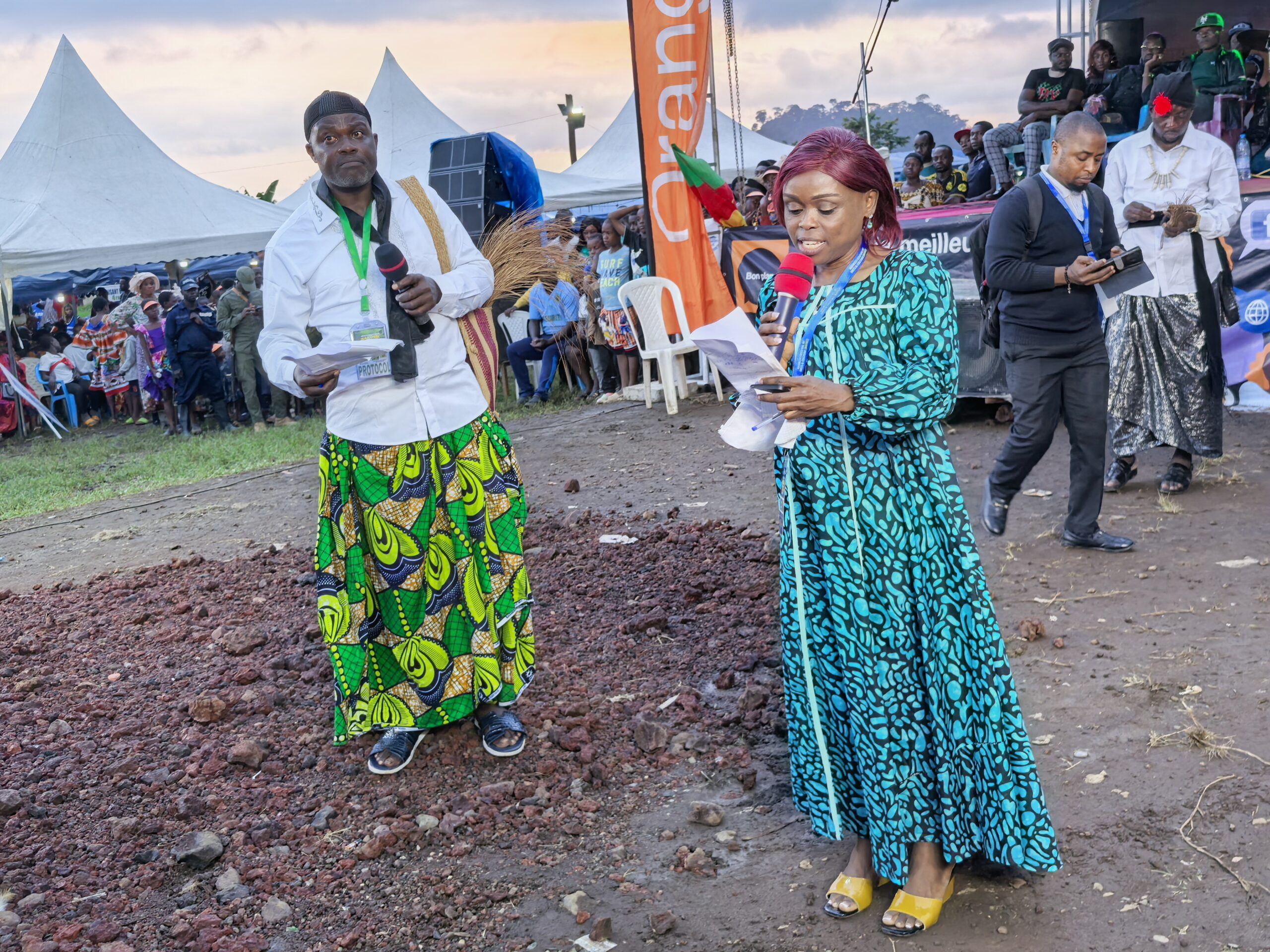
Let us remember this biblical truth: Not until you seek the good of your nation, you may not see good. Nations do not make people—it is people that make nations. Peace, unity, and prosperity are not granted—they are built, by hands and hearts willing to rise above differences. If we seek the peace and prosperity of our communities—our towns and villages—then we, too, shall prosper. For a people who invest in the wellbeing of their land invest in their own future. Therefore, let every Bakossi son and daughter see themselves not as spectators of our fate, but as architects of a united destiny. The city that thrives because of your contribution becomes the city that shelters your dreams.
Let us live the wisdom of the proverb: “A single broomstick breaks easily, but a bundle is unbreakable.”
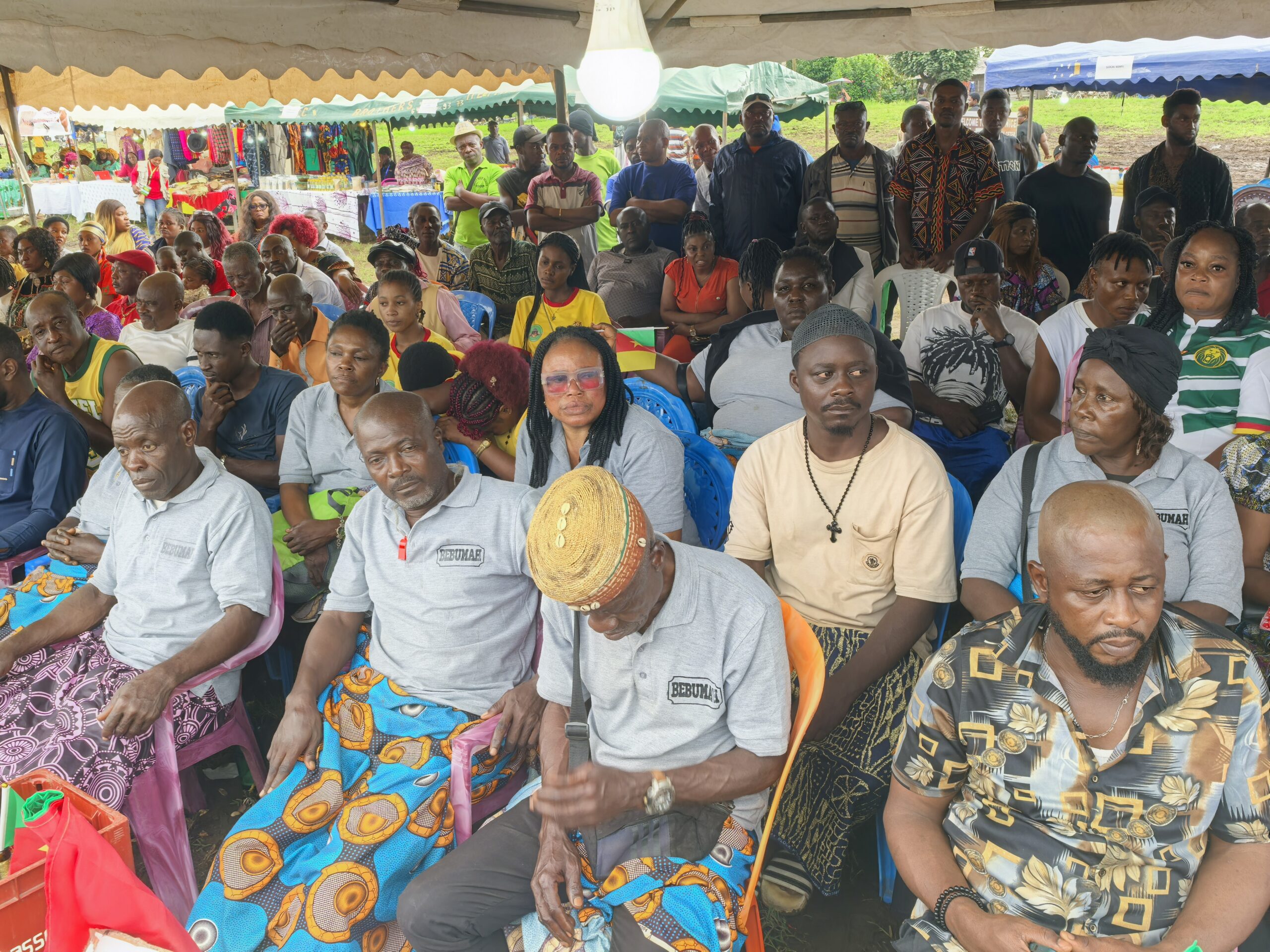 Let us be that bundle. Strong. United. Unbreakable. The story of our origin is not folklore—it is our foundation.
Let us be that bundle. Strong. United. Unbreakable. The story of our origin is not folklore—it is our foundation.
The legendary Ngoe and the mythical Sumediang are more than just names—they are the sacred origin of our people and the foundation of our collective identity. In Bakossi oral tradition and that of many kindred groups, Ngoe is remembered as the first man—a wise and divinely guided ancestor—who was chosen to settle in the muaneguba area and found our lineage. Sumediang, his faithful wife and spiritual partner, is revered not only as the mother of our clans, but also as a symbol of the sacred feminine, recounted in our genealogical records.
From the union of Ngoe and Sumediang sprang a lineage of clans and communities that migrated across the hills, valleys, and rivers of present-day Bakossiland, extending into surrounding territories.
To honour Ngoe and Sumediang is to honour the sacred values they represent: unity, justice, kinship, harmony with nature, and reverence for the divine. They are the root of our origin, and the compass for our future.
The Akoose dialect, spoken by the Bakossi people, is more than just a means of communication—it is a vessel of ancestral memory. Within it are proverbs, idioms, spiritual concepts, and encoded knowledge that preserve the wisdom of Ngoe and Sumediang across generations. It stands not only as a cultural identity marker, but as a linguistic bridge within the greater Bantu language family.
This is not mere folklore—it is the narrative thread that binds the Bakossi to the wider Bantu-speaking world and to kindred ethnic groups who also trace their roots to these progenitors.
Also, we must remember that our history is deeply connected to these kindred groups. We share bloodlines, borders, customs, and sacred memories. In that spirit, I extend a hand of brotherhood to the Mbo, Bakundu, Balondo, Bafaws, Balong, Bassosi, Baneka, Bareko, Bakaka, Babong, Manehas, Bakem, Bafuns and other related communities. History calls on us to strengthen these bonds and build lasting cultural bridges.
The legacy of NGOE binds us beyond blood. It reminds us that despite our differences, we are children of one house. Therefore, let this festival be a bridge of peace and cultural exchange. Let us honour him not just with words, but with actions—by living in unity, dignity, and responsibility.
This festival must not end with music and dance—it must mark the beginning of a renaissance.
Let us build community museums. Let us document our oral histories. Let us integrate Bakossi culture into our schools. Let us digitize our stories, our songs, and our symbols.
Let this be not just a festival—but a turning point.
Let each clan return home with a mission: to protect and promote our culture.
Let us build bridges—not just among ourselves—but with the world, as proud and united Bakossi ambassadors.
To our respected Chiefs and Traditional Authorities—please remain guardians of our values. To our Elites—be visionaries, and lead with wisdom rooted in identity. To our Youth—step forward boldly, Learn, Serve and Lead. To our Women—continue being the heart of our homes, our culture, and our resilience. To the Administration—walk with us, empower us and support our heritage.
To all Bakossi people—here and in the diaspora—I say: Let us move forward as one, One people, One heritage and One future.
Let us celebrate the wisdom of our ancestors, the creativity of our youth, and the unbreakable bond of our heritage.
Let the drums of Bakossi echo—not just during this festival, but for generations to come.
Thank you. May the spirits of Ngoe and Sumediang guide us. Long live Bakossi unity!
Long live our heritage!
Long live the Bakossi people!
Long live our beloved country.
Je vous remercie de votre aimable attention.




